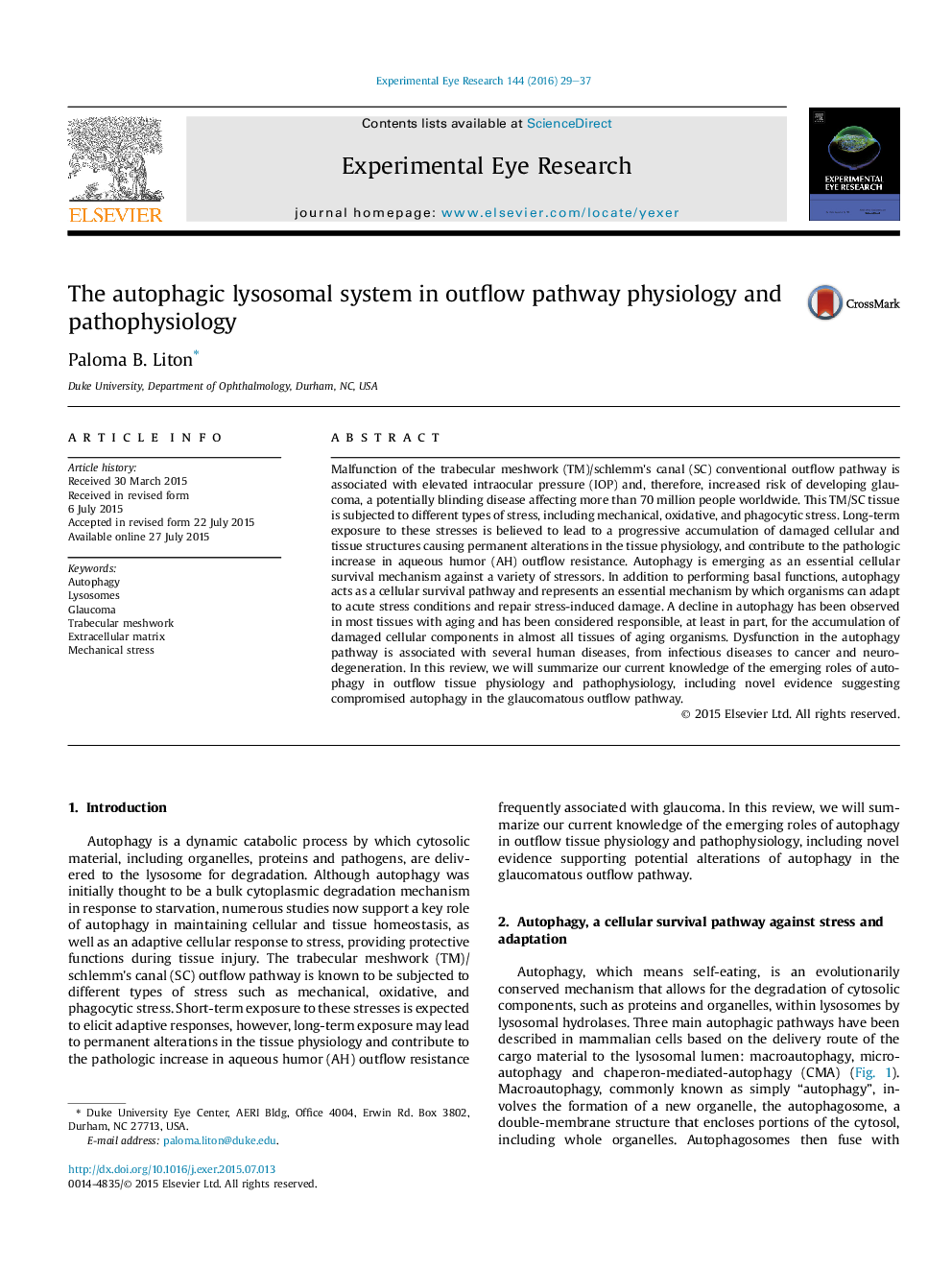| Article ID | Journal | Published Year | Pages | File Type |
|---|---|---|---|---|
| 4011079 | Experimental Eye Research | 2016 | 9 Pages |
•Autophagy is induced in TM cells in response to oxidative and mechanical stress.•The autophagic lysosomal system is emerging as an important regulator of outflow pathway physiology.•Chronic oxidative stress induces lysosomal basification in TM cells and consequent decrease in autophagic flux.•Glaucomatous TM cells display dysregulated autophagic function.
Malfunction of the trabecular meshwork (TM)/schlemm's canal (SC) conventional outflow pathway is associated with elevated intraocular pressure (IOP) and, therefore, increased risk of developing glaucoma, a potentially blinding disease affecting more than 70 million people worldwide. This TM/SC tissue is subjected to different types of stress, including mechanical, oxidative, and phagocytic stress. Long-term exposure to these stresses is believed to lead to a progressive accumulation of damaged cellular and tissue structures causing permanent alterations in the tissue physiology, and contribute to the pathologic increase in aqueous humor (AH) outflow resistance. Autophagy is emerging as an essential cellular survival mechanism against a variety of stressors. In addition to performing basal functions, autophagy acts as a cellular survival pathway and represents an essential mechanism by which organisms can adapt to acute stress conditions and repair stress-induced damage. A decline in autophagy has been observed in most tissues with aging and has been considered responsible, at least in part, for the accumulation of damaged cellular components in almost all tissues of aging organisms. Dysfunction in the autophagy pathway is associated with several human diseases, from infectious diseases to cancer and neurodegeneration. In this review, we will summarize our current knowledge of the emerging roles of autophagy in outflow tissue physiology and pathophysiology, including novel evidence suggesting compromised autophagy in the glaucomatous outflow pathway.
